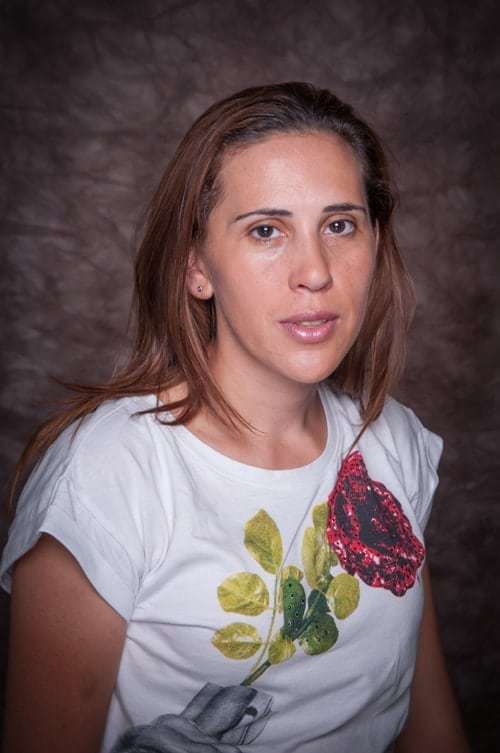Δημόσιες Σχέσεις, Διαφήμιση και Μάρκετινγκ
(BA, 4 έτη)
Διάρκεια Σπουδών
4 έτη
Τίτλος Σπουδών
Πτυχίο Δημοσίων Σχέσεων, Διαφήμισης και Μάρκετινγκ
Επίπεδο Τίτλου Σπουδών
Πτυχίο (1ος Κύκλος Σπουδών)
Γλώσσα Διδασκαλίας
Αγγλική
Μέθοδος Φοίτησης
Πλήρης ή Μερική Φοίτηση
Ελάχιστες Ευρωπαϊκές Πιστωτικές Μονάδες (ECTS)
240
Πληροφορίες
Δημόσιες Σχέσεις, Διαφήμιση και Μάρκετινγκ (BA, 4 έτη)
| Διάρκεια Σπουδών | 4 έτη |
| Τίτλος Σπουδών | Πτυχίο Δημοσίων Σχέσεων, Διαφήμισης και Μάρκετινγκ |
| Επίπεδο Τίτλου Σπουδών | Πτυχίο (1ος Κύκλος Σπουδών) |
| Γλώσσα Διδασκαλίας | Αγγλική |
| Μέθοδος Φοίτησης | Πλήρης ή Μερική Φοίτηση |
| Ελάχιστες Ευρωπαϊκές Πιστωτικές Μονάδες (ECTS) | 240 |
Πληροφορίες
Περιγραφή Προγράμματος
Οι Δημόσιες Σχέσεις αποτελούν πια μέρος της στρατηγικής, τόσο των δημόσιων, όσο και των ιδιωτικών οργανισμών. Σήμερα, οι αλλαγές στις κοινωνικές δομές, καθώς επίσης και στην τεχνολογία των επικοινωνιών, καθιστούν την οργανωμένη εταιρική επικοινωνία απαραίτητο στοιχείο της λειτουργίας τόσο των κερδοσκοπικών, όσο και των μη κερδοσκοπικών οργανισμών. Με αυτό το σκεπτικό οργανώθηκε το πρόγραμμα των Δημοσίων Σχέσεων, του Μάρκετινγκ και της Διαφήμισης, η οποία αποτελεί επίσης απαραίτητο στοιχείο στην επικοινωνία της αγοράς. Στο πλαίσιο του προγράμματος καλλιεργείται η ευαισθησία στο κοινωνικό, οικονομικό, πολιτικό, ηθικό και τεχνολογικό περιβάλλον, μέσα στο οποίο καλούνται σήμερα να λειτουργήσουν οι σύγχρονοι οργανισμοί. Επίσης παρέχονται στο φοιτητή οι προσωπικές δεξιότητες για το συστηματικό σχεδιασμό και τη μετάδοση ιδεών, η τεχνική της ομαδικής εργασίας, καθώς και η διαπολιτισμική κατανόηση και η συνεργασία.
Προοπτικές Σταδιοδρομίας
Career opportunities are available both in the public sectors and the private sectors. For example, some of our graduates work as public relations practitioners at various offices within the government such as the Public Information office of the Cypriot government and others are employed by private companies where students can combine interests in public relations and in other fields such as technology (PrimeTel and Cablenet) or environmental issues (Greedot Cyprus). Still, there are also companies and agencies specializing in the areas of marketing/media research and consultancy and some graduates choose to work in this sector. Typical examples will be Dilemma Advertising Agency and A. C. Nielson, Cyprus (AGB).
Πρόσβαση σε Περαιτέρω Σπουδές
Οι απόφοιτοι του προγράμματος μπορούν να γίνουν δεκτοί σε σπουδές δεύτερου κύκλου (Μεταπτυχιακές Σπουδές).
Ακαδημαϊκή Εισδοχή
Το ελάχιστο κριτήριο εισδοχής στα προπτυχιακά προγράμματα σπουδών είναι το αναγνωρισμένο Απολυτήριο Λυκείου ή άλλο διεθνώς αναγνωρισμένο ισοδύναμο προσόν. Οι φοιτητές/τριες με βαθμό απολυτηρίου χαμηλότερο από 7.5/10 ή 15/20 ή αντίστοιχο, ανάλογα με το σύστημα βαθμολόγησης της χώρας έκδοσης του απολυτηρίου, λαμβάνουν, κατά το πρώτο έτος των σπουδών τους, επιπρόσθετη ακαδημαϊκή καθοδήγηση και παρακολούθηση.
Επαρκής Γνώση Αγγλικής Γλώσσας
Οι ελάχιστες απαιτήσεις γνώσης της αγγλικής γλώσσας για εγγραφή στα προγράμματα σπουδών αναγράφονται πιο κάτω. Οι φοιτητές/τριες που δεν κατέχουν κάποιο από τα πιο κάτω πιστοποιητικά ή τους ελάχιστους βαθμούς και κατέχουν IELTS με 4.5 και άνω, θα πρέπει να παρακαθήσουν τις κατατακτήριες εξετάσεις αγγλικής γλώσσας του Πανεπιστημίου – NEPTON (χωρίς χρέωση) και αν χρειαστεί, να παρακολουθήσουν υποστηρικτικά μαθήματα αγγλικής γλώσσας.
- TOEFL – 525 και άνω
- Computer-based TOEFL – 193 και άνω
- Internet-based TOEFL – 80 και άνω
- IELTS – 6 και άνω
- Cambridge Exams [First Certificate] – B και άνω
- Cambridge Exams [Proficiency Certificate – C και άνω
- GCSE English Language “O” Level – C και άνω
- Michigan Examination of Proficiency in English (CaMLA) – Pass
- Pearson PTE General – Level 3 και άνω
- KPG (The Greek Foreign Language Examinations for the State Certificate of Language Proficiency) – Level B2 και άνω
- Anglia – Level B2 και άνω
- IEB Advances Programme English – Pass
- Examination for the Certificate of Proficiency in English (ECPE) Michigan Language Assessment by: Cambridge Assessment English & University of Michigan – 650 average score for ALL skills και άνω.
Η αξιολόγηση του μαθήματος αποτελείται συνήθως από μια τελική εξέταση και συνεχή αξιολόγηση. Η συνεχής αξιολόγηση μπορεί να περιλαμβάνει μεταξύ άλλων, ενδιάμεση εξέταση, μελέτες, και συμμετοχή στην τάξη.
Η βαθμολογία υπολογίζεται βάσει του βάρους της τελικής εξέτασης, της συνεχούς αξιολόγησης και της πραγματικής αριθμητικής βαθμολογίας που λήφθηκε σε αυτές τις δύο αξιολογήσεις. Με βάση την βαθμολογία των μαθημάτων υπολογίζεται ο μέσος βαθμός του εξάμηνου (GPA) ενός φοιτητή καθώς και ο γενικός μέσος όρος (CPA).
Ο φοιτητής πρέπει να συμπληρώσει 240 ECTS καθώς και όλες τις απαιτήσεις του προγράμματος.
Ο ελάχιστος απαιτούμενος γενικός βαθμός (CPA) είναι 2.0. Παρά το γεγονός ότι με το βαθμό ‘D-‘ το μάθημα θεωρείται ότι ολοκληρώθηκε επιτυχώς, ο απαιτούμενος μέσος όρος είναι το ‘C’ για να επιτευχθεί ο ελάχιστος απαιτούμενος γενικός βαθμός (CPA) 2.0.
The objectives and learning outcomes for each module provides evidence with respect to various assessments used and their contribution to the below learning objectives). On successful completion of the Bachelor of Arts in Public Relations, Advertising and Marketing program graduates are expected to be able to:
- Outline and discuss main theoretical concepts in key areas of Public Relations, Advertising and Marketing.
- Apply the knowledge gained in the solution of marketing communication problems.
- Master the skills for students to practice in all three subject areas.
- Demonstrate an operating knowledge of Public Relations, Advertising and Marketing implementation in a business setting.
- Demonstrate familiarity with the major concepts, theoretical perspectives, empirical findings, and historical trends in Public Relations, Advertising and Marketing.
- Employ critical and creative thinking, skeptical inquiry, and applicable knowledge in practice of Public Relations, Advertising and Marketing.
- Interpret consumers’ perception of brands and consumers’ brand-related behavior to meet organizational goals.
- Appreciate the importance and role of branding from the consumer perspective as well as the process through which consumers decide which brands to choose.
- Utilize branding as an essential marketing communications tool towards achieving organizational goals within the strategic marketing context for different situations.
- Exercise marketing communications branding within different contexts relating to different industries, different product types and also different business environment conditions. They also learn to develop these in association with the other strategic marketing functions.
- Analyse, interpret and predict consumer behaviour, and correspondingly describe and prescribe it using individual and environmental factors’ profile of the individual consumer or segment.
- Interpret consumer behaviour analysis towards practical market segmentation and effective consequent targeting.
- Utilise consumer behaviour knowledge within the wider marketing communications planning process.
- Analyze the need for an enlightened Strategy including the elements of Public Relations, Advertising and Marketing.
- Understand and analyze the relevant research in advertising and marketing communication.
- Develop advertising media buying and planning strategies.
- Create and defend the strategy and execution of an ad campaign for a client(s).
- Think effectively and weigh evidence, tolerate ambiguity, act ethically in the areas of communications, and reflect on other values that are the underpinnings of Public Relations, Advertising and Marketing as a discipline.
- Assess contemporary concerns and developments existing within the field of public relations, advertising and the marketing environment and the organizational environment both in the local and international markets.
- Critically evaluate the key analytical frameworks and tools used in Public Relations, Advertising and Marketing.
- Critically evaluate the marketing communications function and the role it plays in achieving organisational success both in commercial and non-commercial settings.
- Evaluate and act upon the ethical and environmental concerns linked to marketing communications activities.
- Design effective visual communication for various marketing communications and advertising approaches that combine the use of print, online/digital, and other multimedia communication.
- Collect and apply appropriate qualitative & quantitative research in order to analyze, communicate insightfully, and to measure results within the current advertising and public relations marketplace and for campaign evaluation.
Min. ECTS Credits: 168 – Max. ECTS Credits: 168
| Course ID | Course Title | ECTS Credits |
|---|---|---|
| COMM-125 | Journalism in the Digital Era | 6 |
| COMM-135A | Introduction to Communication Studies | 6 |
| COMM-220 | Writing for Digital Media | 6 |
| COMM-241 | Communication and Media Research Methods | 6 |
| COMM-321 | Public Relations Principles | 6 |
| COMM-322 | Public Relations Methods | 6 |
| COMM-324 | Internal Communication Management | 6 |
| COMM-325 | Event Management | 6 |
| COMM-344 | Persuasion and Media Culture | 6 |
| COMM-384 | Digital Media and Youth Culture | 6 |
| COMM-395 | PR and the New Media | 6 |
| COMM-400 | Media Literacy | 6 |
| COMM-422 | PR Campaign Development and Management | 6 |
| COMM-431 | Gender and Communication | 6 |
| COMM-441 | Media and Cultural Theory | 6 |
| COMM-443 | Advertising and Creativity in the Digital Age | 2 |
| COMM-445 | Internship in PR, Advertising and Marketing (120 hours) | 6 |
| COMM-490 | Senior Year Project | 6 |
| MIS-220 | Technologies for the Social Web | 6 |
| MKTG-291 | Marketing | 6 |
| MKTG-301 | Social Media Marketing | 6 |
| MKTG-310 | Integrated Marketing Communications | 6 |
| MKTG-390 | Digital Marketing | 6 |
| MKTG-396 | Marketing Research and Data Analytics | 6 |
| MKTG-400 | Brand Management | 6 |
| MKTG-405 | Media Planning | 6 |
| MKTG-493 | Strategic Marketing | 6 |
| MKTG-496 | Consumer Behavior | 6 |
Min. ECTS Credits: 24 – Max. ECTS Credits: 36
| Course ID | Course Title | ECTS Credits |
|---|---|---|
| COMM-116 | Audio Production | 6 |
| COMM-117 | Video Production | 6 |
| COMM-230 | Voice and Diction | 6 |
| COMM-401 | Lifestyle and Fan-based Media | 6 |
| COMM-410 | Internet TV | 6 |
| COMM-440 | Communication Law and Media Ethics | 6 |
| DES-260 | Photography I | 6 |
| MKTG-256 | Web-Based Applications Development | 6 |
| MKTG-380 | Marketing of Services | 6 |
| MKTG-388 | Small Firms and B2B Marketing | 6 |
Min. ECTS Credits: 12 – Max. ECTS Credits: 30
Notes: Placement in English courses is done on the basis of a Placement Test or tests such as TOEFL or GCE.
| Course ID | Course Title | ECTS Credits |
|---|---|---|
| BADM-231 | Business Communications | 6 |
| BADM-332 | Technical Writing and Research | 6 |
| BENG-100 | College English | 6 |
| COMM-200 | Business and Professional Communication | 6 |
| ENGL-100 | Basic Writing | 6 |
| ENGL-101 | English Composition | 6 |
Min. ECTS Credits: 12 – Max. ECTS Credits: 24
| Course ID | Course Title | ECTS Credits |
|---|---|---|
| ACCT-110 | Accounting I | 6 |
| BADM-234 | Organizational Behavior | 6 |
| BADM-475 | Strategy and Business Policy | 6 |
| ECON-261 | Principles of Microeconomics | 6 |
| ECON-262 | Principles of Macroeconomics | 6 |
| MGT-281 | Introduction to Management | 6 |
| MIS-151 | Business Software Applications | 6 |
Min. ECTS Credits: 12 – Max. ECTS Credits: 36
Notes: Or any DANC, EUS, FREN, GERM, ITAL, PSY, RUS, SOC, SPAN, TURK, GREK, HIST, MUS, PHIL courses
| Course ID | Course Title | ECTS Credits |
|---|---|---|
| ANTH-105 | Cultural Anthropology | 6 |
| ART-110 | Introduction to Visual Arts | 6 |
| BADM-121 | Business Ethics | 6 |
| ESCI-200 | Society and Environment | 6 |
| EUS-103 | Modern European History and Politics | 6 |
| HIST-257 | Modern Cypriot History and Politics | 6 |
| PHIL-101 | Introduction to Philosophy | 6 |
| PHIL-120 | Ethics | 6 |
| PSY-110 | General Psychology I | 6 |
| PSY-111 | General Psychology II | 6 |
| PSY-210 | Social Psychology | 6 |
Semester 1
| Course ID | Course Title | ECTS Credits |
|---|---|---|
| COMM-125 | Journalism in the Digital Era | 6 |
| COMM-321 | Public Relations Principles | 6 |
| COMM-135A | Introduction to Communication Studies | 6 |
| COMM-116 | Audio Production | 6 |
| BENG-100 | College English | 6 |
Semester 2
| Course ID | Course Title | ECTS Credits |
|---|---|---|
| COMM-220 | Writing for Digital Media | 6 |
| COMM-230 | Voice and Diction | 6 |
| MKTG-291 | Marketing | 6 |
| MIS-220 | Technologies for the Social Web | 6 |
| COMM-200 | Business and Professional Communication | 6 |
Semester 3
| Course ID | Course Title | ECTS Credits |
|---|---|---|
| COMM-322 | Public Relations Methods | 6 |
| COMM-241 | Communication and Media Research Methods | 6 |
| MKTG-310 | Integrated Marketing Communications | 6 |
| COMM-325 | Event Management | 6 |
| PSY-110 | General Psychology I | 6 |
Semester 4
| Course ID | Course Title | ECTS Credits |
|---|---|---|
| COMM-324 | Internal Communication Management | 6 |
| COMM-344 | Persuasion and Media Culture | 6 |
| COMM-395 | PR and the New Media | 6 |
| COMM-384 | Digital Media and Youth Culture | 6 |
| COMM-117 | Video Production | 6 |
Semester 5
| Course ID | Course Title | ECTS Credits |
|---|---|---|
| MKTG-301 | Social Media Marketing | 6 |
| MKTG-396 | Marketing Research and Data Analytics | 6 |
| COMM-400 | Media Literacy | 6 |
| COMM-431 | Gender and Communication | 6 |
| COMM-401 | Lifestyle and Fan-based Media | 6 |
Semester 6
| Course ID | Course Title | ECTS Credits |
|---|---|---|
| COMM-441 | Media and Cultural Theory | 6 |
| MKTG-390 | Digital Marketing | 6 |
| COMM-422 | PR Campaign Development and Management | 6 |
| MKTG-400 | Brand Management | 6 |
| COMM-400 | Media Literacy | 6 |
Semester 7
| Course ID | Course Title | ECTS Credits |
|---|---|---|
| MKTG-405 | Media Planning | 6 |
| COMM-490 | Senior Year Project | 6 |
| COMM-443 | Advertising and Creativity in the Digital Age | 2 |
| BADM-234 | Organizational Behavior | 6 |
| MKTG-388 | Small Firms and B2B Marketing | 6 |
Semester 8
| Course ID | Course Title | ECTS Credits |
|---|---|---|
| BADM-475 | Strategy and Business Policy | 6 |
| COMM-445 | Internship in PR, Advertising and Marketing (120 hours) | 6 |
| MKTG-380 | Marketing of Services | 6 |
| MKTG-496 | Consumer Behavior | 6 |
| MKTG-493 | Strategic Marketing | 6 |













